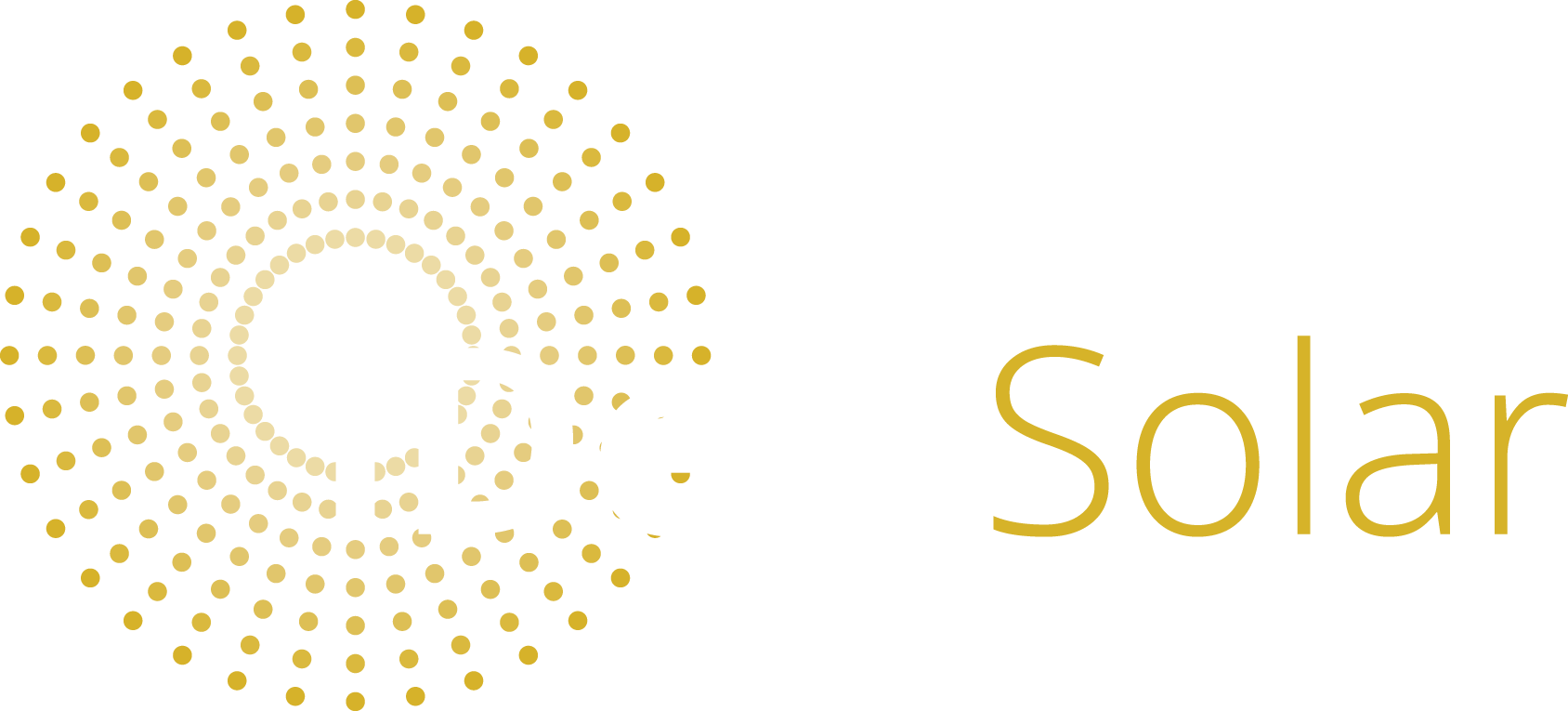Solar power offers long-term savings by significantly reducing electricity bills, increasing home value, and providing a return on investment. Over their lifetime, homeowners can save between $28,000 and $120,000, depending on local electricity costs.
If you’re curious about how switching to solar can impact your finances and lifestyle, keep reading to discover the various benefits and considerations involved in making the switch.
Long-Term Savings Associated with Solar Power:
- Reduced Electricity Bills: By installing solar panels, you can dramatically lower your monthly electricity bills. Once your system is paid off, you may even receive electricity credits, further cutting costs. For many homeowners, solar reduces energy expenses by 50% or more over time, leading to substantial savings.
- Increased Home Value: Investing in solar power can raise your home’s value. Studies have shown that homes with solar panels sell for about 4.1% more than similar homes without solar. This means that your solar investment not only pays for itself through energy savings but also translates into a profitable boost when you eventually sell your home.
- Tax Incentives and Rebates: When you go solar, you might qualify for federal and state tax incentives, which can significantly lower your initial investment. The Federal Solar Tax Credit allows you to deduct a large percentage of your solar installation costs from your taxes, offering immediate financial relief.
- Long-Term Investment: Over the lifespan of solar panels, typically around 25 to 30 years, you could save between $28,000 and $120,000 depending on your local energy rates and system size. This makes solar a reliable and low-risk financial choice that protects you from future electricity price hikes.

How Will Switching to Solar Power Affect My Electricity Bills Over the Years?
Switching to solar power can significantly reduce your electricity bills, especially in the first few years. Initially, you may still see a bill, but it will likely be lower. Over time, as your solar system generates more energy than you use, you might even receive credits back from your utility company.
Many homeowners experience a 50% or more reduction in their monthly bills. After several years, when your solar system is fully paid off, you’ll enjoy nearly free electricity, allowing you to save thousands of dollars over the system’s lifespan, typically 25 to 30 years.
Can I Quantify the Return on Investment (Roi) for My Solar Installation?
Yes, you can definitely quantify the Return on Investment (ROI) for your solar installation. To start, calculate your upfront costs, including installation and equipment. Then, consider your annual savings on electricity bills and any additional income from net metering or credits.
On average, homeowners can see an ROI of around 10% to 20% annually. Depending on your local energy rates, your investment in solar panels can pay off in about 5 to 8 years. Over the lifespan of the system, you could save anywhere from $28,000 to $120,000, making solar power a financially sound decision.
What Incentives or Rebates Am I Eligible for in Australia That Can Boost My Savings?
In Australia, numerous incentives and rebates can significantly reduce the cost of solar installations. The Small-scale Renewable Energy Scheme (SRES) allows you to get small-scale technology certificates, which can be traded for cash to lower your upfront costs.
Additionally, many states offer their own solar rebates and incentives, so check local programs to see what’s available. Some areas provide interest-free loans or grants for solar systems as part of efforts to increase renewable energy use.
Furthermore, installing battery storage may qualify for additional incentives under various programs. Altogether, these benefits can enhance your savings and make going solar even more appealing!
How Much Could I Potentially Earn from Selling Excess Solar Energy Back to the Grid?
You could potentially earn between $50 and $700 a month from selling excess solar energy back to the grid, depending on several factors. The size of your solar panel system, the local utility rates, and how much sunlight your area receives all play a role in your earnings.
For instance, if you live in a state with high electricity prices, each kilowatt-hour you sell can be worth more, increasing your profits. Additionally, if your utility company offers a good net metering program, you can earn credits for the surplus energy you produce. Overall, selling excess solar energy can significantly reduce your electricity bills and provide you with added income.
Will My Property Value Increase If I Install Solar Panels on My Roof?
Yes, installing solar panels on your roof can increase your property value. Many homebuyers view solar panels as attractive features because they can lower electricity costs and promote environmental sustainability.
Studies show that homes with solar systems often sell for a higher price compared to similar homes without them. By going solar, you not only contribute to a cleaner environment but also make a smart investment in your property.
Depending on your location and the local real estate market, the value added from solar panels can range from $15,000 to $30,000 or more. This means that installing solar panels can be a wise financial decision for your home.
Are There Any Hidden Costs Associated with Solar Installations That I Should Be Aware Of?
Yes, there can be hidden costs associated with solar installations that you should keep in mind. First, consider insurance; adding solar panels may increase your homeowner’s policy premium. Additionally, you might need to budget for maintenance and occasional repairs, even though solar panels generally require minimal upkeep.

Some areas may demand landscaping around ground-mounted systems to avoid shading, which can add costs. Finally, ongoing charges from your utility, like customer fees, can still apply, which means you may not completely eliminate your electric bill. Understanding these potential expenses will help you plan better and ensure that solar remains a worthwhile investment for you.
What Advancements in Solar Technology Can Help Me Save More Money in the Future?
Several exciting advancements in solar technology can enhance your savings. For instance, improvements in solar panel efficiency mean that modern panels can convert more sunlight into energy, reducing the number of panels you need.
Bifacial solar panels can capture sunlight from both sides, increasing energy production. Also, energy storage systems, like solar batteries, allow you to save excess energy for use at night or during outages, further reducing reliance on the grid.
Additionally, innovations in smart inverter technology enable better energy management and optimization, maximizing the benefits of solar energy. These advancements can significantly lower your electricity costs, making solar investments even more rewarding.
How Can I Calculate the Payback Period for My Solar Investment?
Calculating the payback period for your solar investment is quite simple. Start by determining the total cost of your solar system, including installation, which may be around $20,000.
Next, factor in any incentives, such as the 30% federal tax credit, which can reduce your net cost to about $14,000. Then, estimate your annual savings by reducing your electric bills. If you save around $1,800 per year, simply divide your net cost by your annual savings.
For this example, $14,000 ÷ $1,800 gives you a payback period of approximately 7.8 years. This means that after about 8 years, your solar investment will start to generate positive returns. This straightforward calculation helps you understand the financial benefits of going solar.
What Local Regulations in Australia Should I Be Aware of Regarding Solar Energy Savings?
In Australia, there are several local regulations regarding solar energy that you should be aware of. First, check if there are any building codes or zoning laws in your area that govern solar panel installations, as these can vary by location.
You might need to obtain a development approval or a building permit, especially if you’re in a heritage area or have a complex roof design. Also, understand the grid connection rules from your local utility, as they dictate how much excess energy you can sell back to the grid and if net metering is available.
Finally, be aware of any state or federal incentives for solar installations, which can significantly affect your overall savings. Doing your research will help you comply with regulations and maximize your solar investment.
How Will Climate Factors in My Local Area Affect the Efficiency and Savings of Solar Power?
Climate factors in your local area play a crucial role in the efficiency and savings of solar power. For instance, areas with higher sunlight exposure will generate more solar energy, increasing your savings on electricity bills.
Regions with a hot climate, such as Queensland, typically see higher daily solar production than cloudier areas like Tasmania. Additionally, the angle and orientation of your panels should be adjusted to capture the most sunlight throughout the year, which varies depending on your geographic location.

Also, consider seasonal changes; solar production can drop during winter months if you experience prolonged cloudy days, potentially affecting your monthly savings. Understanding these local climate dynamics will help you maximize the effectiveness of your solar system and predict your overall financial returns.
What Are Some Common Misconceptions About the Long-Term Costs of Solar Power?
- High Upfront Costs: Many believe that solar power systems are too expensive to install. However, with federal incentives and financing options, initial costs have significantly decreased.
- Constant Maintenance Costs: Some think solar panels require high maintenance, but they typically need minimal upkeep, mainly occasional cleaning.
- Inefficient Over Time: A common myth is that solar panels lose efficiency too quickly. In reality, most panels last 25 years or more with gradual efficiency decline, often under 10%.
- No Savings in Cloudy Areas: People often assume that living in a cloudy region means no savings. Even in less sunny areas, solar systems can still provide substantial energy savings.
- Solar Panels Are Only for New Homes: Many think only new constructions can utilize solar power. However, existing homes can also benefit from solar installations.
How Do Solar Batteries Impact the Overall Savings When Paired with Solar Panels?
Solar batteries significantly enhance your savings when paired with solar panels. By storing excess energy generated during the day, you can use this power at night or during grid outages, reducing reliance on costly grid electricity.
This ability to use stored energy can lead to savings of 50% or more on your electricity bill. Additionally, solar batteries can help maximize the benefits of time-of-use electricity rates, as you can draw from your battery when electricity prices are high.
While there is an upfront cost for batteries, many homeowners find that the long-term savings from reduced energy bills and grid dependency make them worthwhile. As technology continues to improve, the efficiency and affordability of solar batteries keep increasing, making them a smart addition to your solar power system.
True Cost of Solar Panels | DON’T WASTE YOUR MONEY
FAQs
How much can I save annually with solar power?
You can save around 15-25% annually on your electricity bills by using solar power.
Does the lifespan of solar panels affect savings?
Yes, most panels last 25+ years, allowing for decades of energy savings.
Do solar panels increase property value?
Yes, homes with solar panels often sell for higher prices.
Do government incentives really impact long-term savings?
Yes, incentives significantly reduce upfront costs, enhancing long-term savings.
Are solar batteries worth the investment for savings?
Yes, they maximize savings by storing excess energy for nighttime use.
Conclusion
Choosing long-term savings associated with solar power is a smart financial decision. By harnessing renewable energy, you reduce your energy bills and gain energy independence. With advancements in solar technology and government incentives, now is a great time to invest in solar. The environment wins, and so does your wallet. Consider the many benefits and take steps toward a brighter, more sustainable future.

